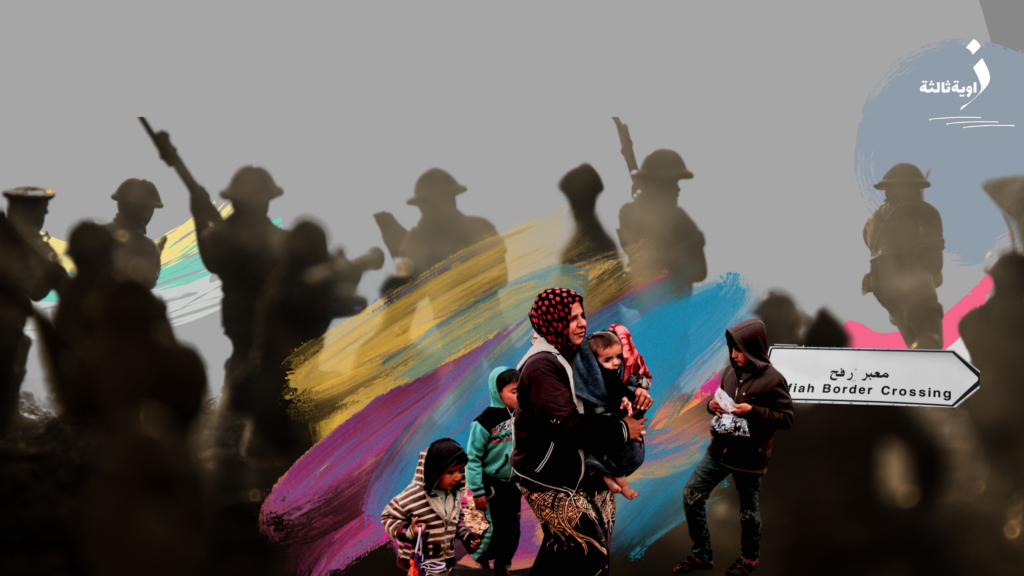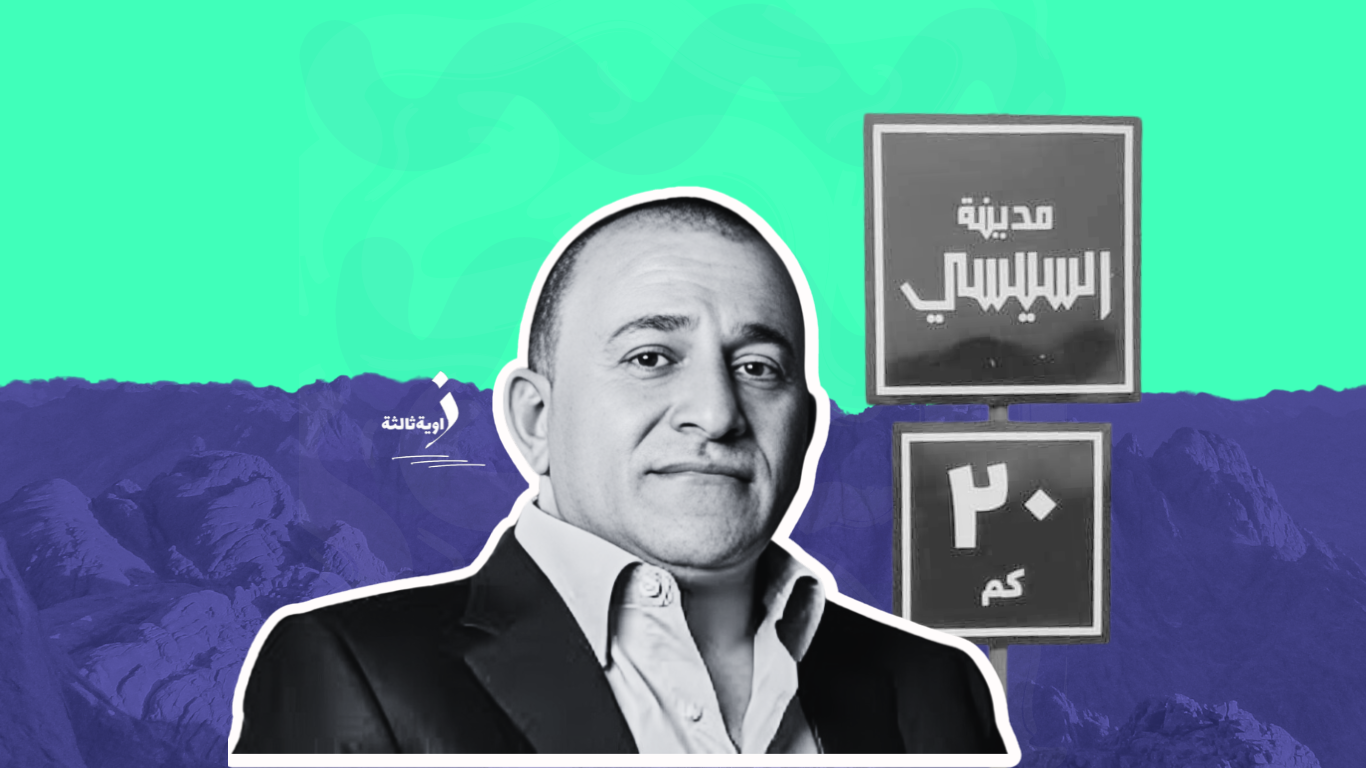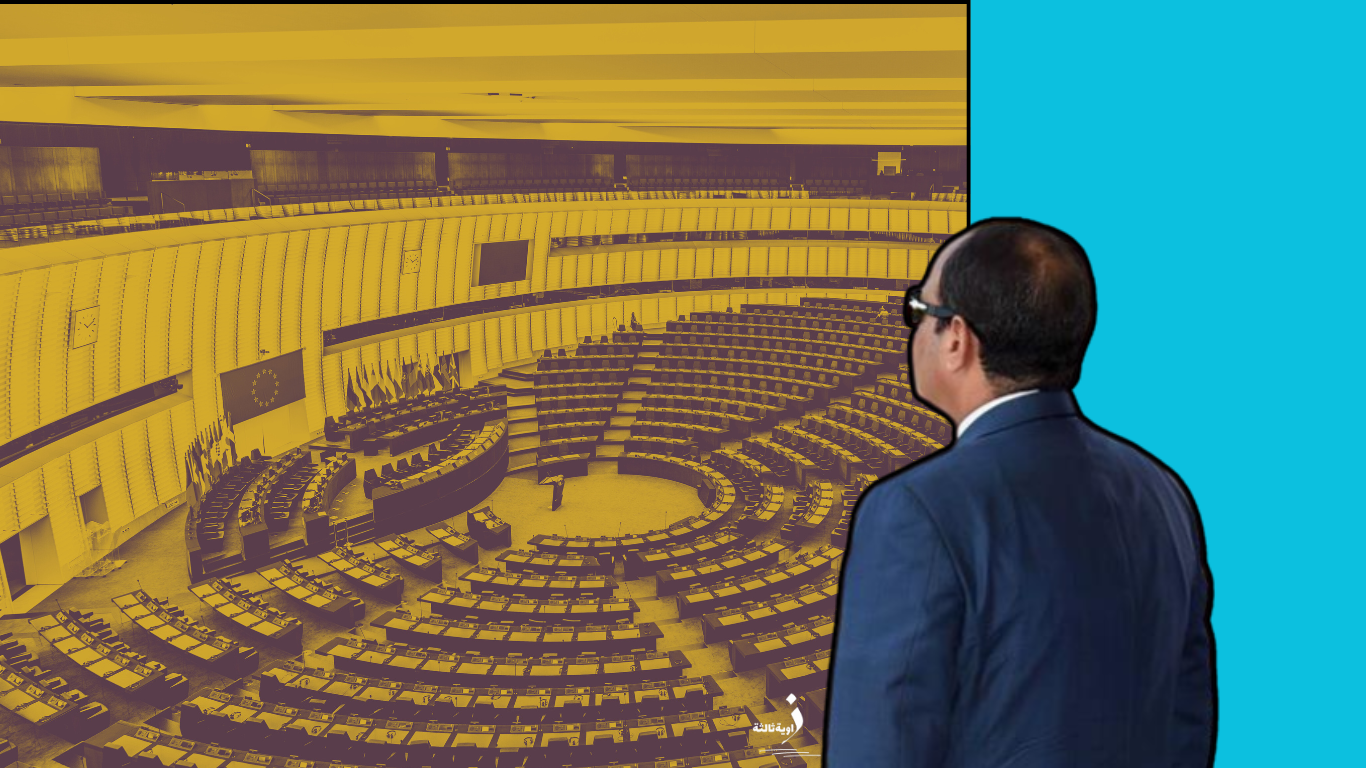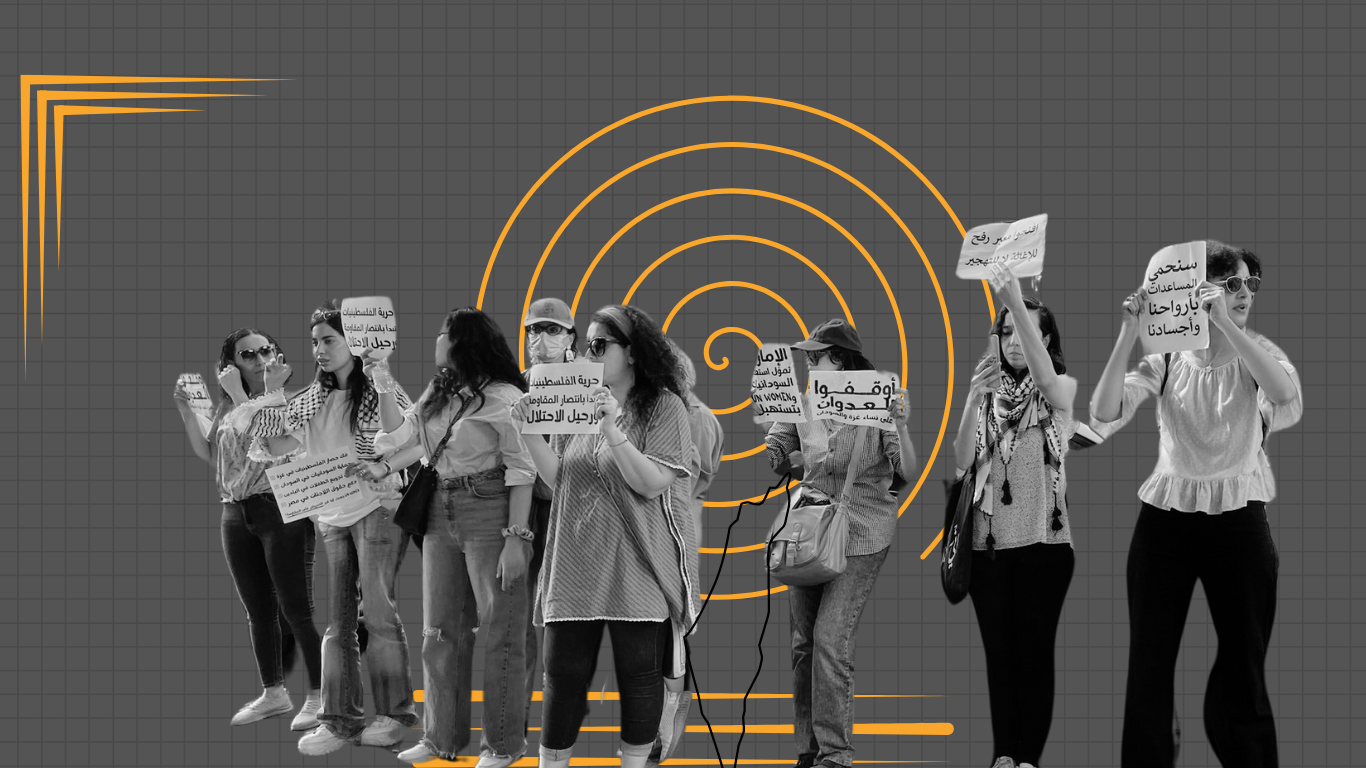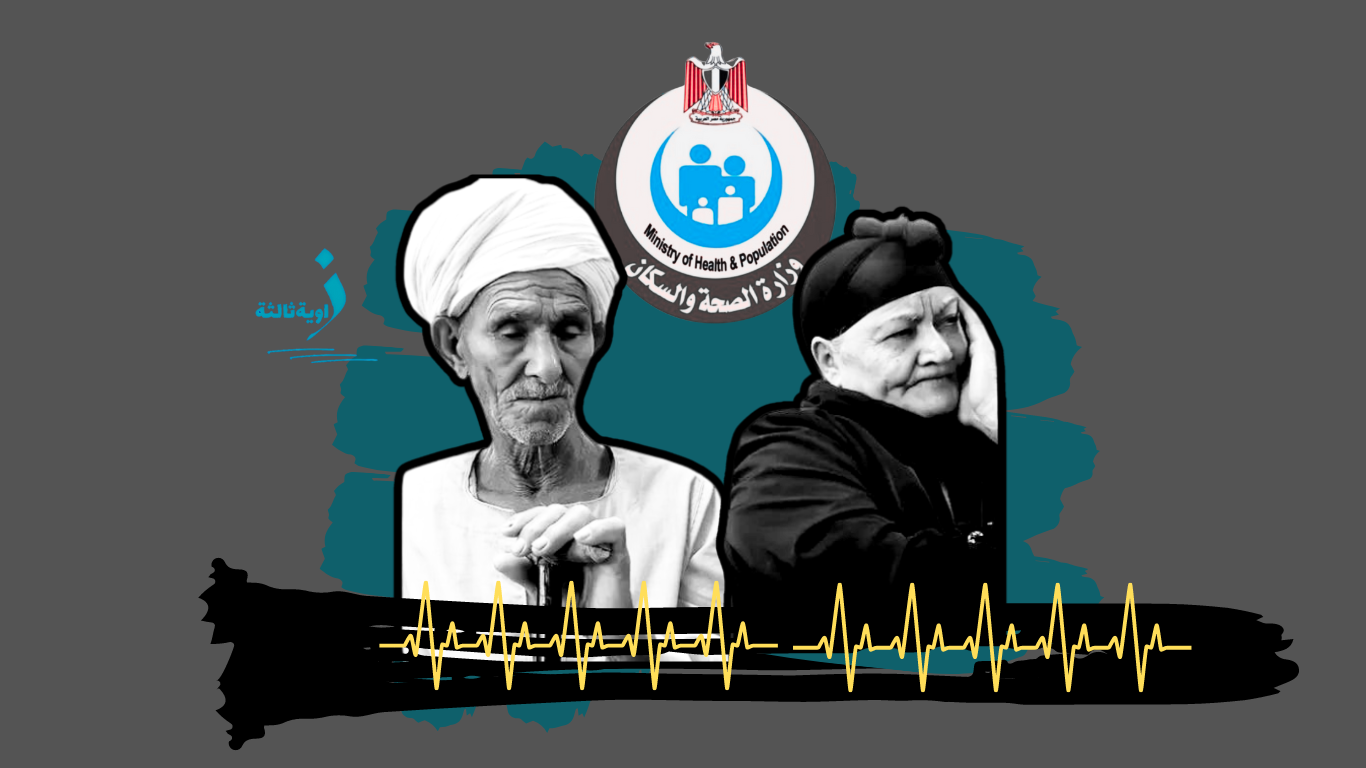“We don’t have dollars to cross; we will die of hunger.” These words have become common to those following the ongoing genocide in Gaza since October 7th. Amidst thousands of reported scenes and thousands more untold, a particular scene prompted us to delve into the issue.
In our coverage of the issue of Egyptians stranded in Gaza, which we addressed last week, Zawia3 obtained audio recordings revealing negotiations between one of the stranded individuals and coordinators who have been working for years in the cross-border trade. They are accustomed to receiving money from various nationalities on the Palestinian side to facilitate their exit through the Rafah crossing between Palestinian Gaza and Egyptian Sinai. According to the coordinator in the audio recording, coordination for Egyptians is available at a cost of $750 per person, starting from the age of 14. As for children below that age, agreements are made with their families for $400 per child, each age having its price.
Between affirmation and denial, our interviews with stranded Egyptians and their families awaiting them in Egypt showed that coordination is a longstanding issue but has intensified in recent years. The prices offered by coordinators have also risen, sometimes reaching $1000 per individual. This exploitation of those stranded, desperate to escape imminent death in Gaza, is evident. Bahaa, an Egyptian stranded in Gaza, says, “Unfortunately, fear for their families drives some to find a coordinator and give them everything they have in exchange for their exit. But the situation is drastically different now; we are stuck in a long war, and we can only survive if Egypt decides to open the crossing and quickly bring back its citizens.”
Abu Mohammed adds, “War profiteers from both sides are very active now, exploiting our need. I am not ready to lose my family; I had to sell my house immediately to get them back.” His opponent, Saif, opposes, “I refuse. We will not pay for our blood. It is the right of the Egyptian state to act and bring back the absentees according to the constitution and the law. We are citizens, and our rights must be fulfilled.”
Adel Abdel Rahman, the head of the Egyptian Community Association in Gaza, denies the existence of current coordination to Zawia3,” saying, “I challenge the existence of any coordination now. I have repeatedly announced that if any citizen contacts a coordinator, they should report it immediately or declare it and expose them.” He explains that the severe need of the stranded has led to the spread of such rumors, emphasizing, “It is sinful to trade in people’s blood. People left their homes, leaving their money and homes, and we must confront the spread of such phenomena in times of war.”
According to Article 88 of the Egyptian Constitution, which stipulates that “the state is committed to caring for the interests of Egyptians residing abroad, protecting them, guaranteeing their rights and freedoms, enabling them to perform their public duties towards the state and society, and contributing to the development of the homeland. The law regulates their participation in elections and referendums, in accordance with their special circumstances, without being bound by the provisions of voting, sorting, and announcing the results stipulated in this constitution, all while providing guarantees to ensure the integrity and neutrality of the election or referendum process.” However, the performance of the Egyptian authorities has fallen short of expectations, failing to uphold the constitutional provision that grants evacuation rights to Egyptian nationals in Gaza and ensures their personal security during the ongoing war.
Amid conflicting reports of coordination, the crucial question remains about the key player controlling the entry and evacuation operations on the Egyptian side for the residents of Gaza. This holds true whether during the current conflict or in the years following the current regime’s rise to power.
Who holds the keys to the Rafah crossing?
The repeated closures imposed on the Rafah border crossing since 2007, the only remaining gateway for Gaza residents to Egypt and the world, have led to a significant backlog of registered travelers at the Palestinian Ministry of Interior in Gaza. This has driven them to seek indirect and possibly illicit means for their travel, especially as the number of those crossing the border in both directions has dwindled to a few hundred, compared to the previous congestion of tens of thousands of travelers each month.
The Palestinian Ministry of Interior prioritizes permits for exit to students, patients, residents, and those registered in the official lists at Abu Khadra Government Complex in Gaza City. This has prevented many from leaving at various times, placing them in long waiting lists, leaving them no choice but to resort to coordination. According to connected sources, there are various forms of coordination, both official (with Hamas authorities) and unofficial. The process began with personal relationships between some Gazans and Egyptian security elements, in exchange for agreed-upon funds, to include them in the coordination lists handed over to the crossing administration to record entry operations.

According to a 2018 news report, every time the crossing opens, a coordination bus carrying approximately 20-30 people gets priority passage. These individuals pay for this privilege, ranging from $1200 to $5000. Initially, the process relied on facilitation by some security elements with intermediaries (coordinators) for around $1200-$1500. This evolved into a more expansive system, reaching the level of war profiteering.
Recently, some tourism companies linked to figures connected to both Egyptian and Palestinian authorities have emerged, openly facilitating coordination operations. These companies ensure the traveler’s name is included in special travel lists within 48 hours, after the traveler pays $200 for registration. The remaining amount ($1000) is paid upon arrival at the hall in the Rafah crossing on the Egyptian side. Children under the age of five enter through these companies for $120, while children aged five to sixteen pay $600.
Under the cover of tourism companies
Operating under the name “Hala for Consultancy and Tourism Services,” the company has been active for a few years, particularly since 2019. It presents itself on its official Facebook page as providing “travel and tourism services, as well as VIP passenger transportation services to the Rafah border crossing using the best methods and the latest means of transportation.” In a previous post from 2021, the company directed Gazans on how to contact its agents in the sector, stating, “Customers of Hala company in the Gaza Strip, despite the difficult conditions the sector is going through at this time, we are committed to serving you at all times. We affirm our commitment to the terms of the VIP travel program, as we, through our agent in Gaza, are obligated to provide transportation for you from your home in the sector to the Rafah border crossing, covering all your expenses and fees until you reach your gate in Cairo.”
We attempted to find information about the company in the directory of tourism companies within Egypt, available on the official website of the Ministry of Tourism and Antiquities. However, we found no information regarding a company with the same name. Instead, we found information about a company called “Hala for Tourism Services,” licensed with number 1233 and located in the Zamalek area in the heart of Cairo. Meanwhile, the official page of the mentioned company states that its headquarters are in the Nasr City district, northeast of the capital. After contacting the company by phone, they refused to provide any information about themselves and declined to answer questions such as: Who specifically owns the company? Since when was it established? How can we access its commercial registration and license numbers? Is the company subject to the regulation of the Ministry of Tourism and Antiquities? The only response we received was about the company’s current suspension of transport operations for Gazans since the start of the war, raising significant doubts about its legitimacy, especially since information about its establishment and the names of its board members should be publicly disclosed.

It was also noted that in June 2022, Al Jazeera news site published on its Facebook page about the company’s commitment to transporting Palestinian travelers through the Rafah crossing, stating that this was based on “directives from President Abdel Fattah el-Sisi.” This led us to question the specific relationship between sovereign authorities and this company, especially as some comments suggested, “The company belongs to Al-Sisi’s son, and coordination fees have increased.” This raises questions about Mahmoud Al-Sisi’s connection to the company, as his name has been mentioned as its owner without any concrete evidence. According to a news report, the person in charge of the company on the Palestinian side in Gaza is named Osama Abu Naqira, who works as an employee in the Rafah municipality and collaborates with those responsible for coordination operations on the Egyptian side, reportedly including individuals from the Egyptian intelligence. It seems that Hamas, the resistance movement governing the sector since 2007, has expressed objections to the coordination procedures, and some offices announced by the company in the Palestinian side have been closed repeatedly. It is worth mentioning that we found no official evidence regarding this matter.
However, based on the information we have gathered, the company announced in 2019 a new paid service to transport Gaza residents through the Rafah crossing to Egypt by establishing a VIP lounge inside the crossing from the Egyptian side. This service allows individuals to bypass the complex security procedures faced by all travelers from Gaza through Egyptian entry points, border and internal checkpoints. According to an anonymous source within the company in 2019, they aimed to “provide the complete travel grant, starting from transporting the passenger from the Gaza Strip to the desired destination or vice versa. This includes the cost of the entry visa through the crossing, transportation fees, and all services that ensure complete comfort and safety for the traveler.” According to the same source, the service fees reached approximately $1,200 for adults and $600 for children above eight years old. The traveler interested in benefiting from this service could register through the company’s branch in Gaza, where the registration procedures for traveling through the company were claimed to be the same as those with the Palestinian Ministry of Interior, with an emphasis on speed and convenience. The source confirmed that the company is private and has no connections with the Egyptian or Palestinian governments.
In the same context, we obtained audio recordings of a coordination process agreed upon with an eyewitness stranded inside the Gaza Strip. We coordinated with him to contact a coordinator named “Waheed Zarrab.” As per the recordings, the coordinator stated, “Things are not that easy now. We try to get out a few people each time the crossing opens. Currently, they ask for between $2,000 to $3,000 for an individual to exit.” We attempted to negotiate with our source to reduce the required amount, but he reacted strongly, insisting not to contact him again.
We repeated the experiment with another Egyptian stranded inside, who communicated with a coordination worker claiming to operate under the name “Rafah East” and managed from a restaurant called “Managesh.” The coordinator informed him that the cost for an Egyptian citizen wishing to cross from Gaza to Egypt through these coordinations amounts to around $350 for those aged 16 and above. For children aged 10 to 16, the cost is about $250, and for those under 10, the cost is $120. He mentioned: “You will pay an insurance amount of $200 for each adult and $120 insurance for the minor child. You will pay the entire amount on the Egyptian side of the crossing upon crossing.”
Stranded because we are Egyptians
According to an official statement from Cairo yesterday, the Egyptian authorities announced the reception of more than 6,000 foreigners and 236 Palestinian wounded through the Rafah border crossing since the outbreak of the Israeli war on the Gaza Strip on October 7th. This announcement has sparked unlimited anger among the stranded Egyptians in Gaza, whom we contacted during the preparation of the investigation. They demand the urgent opening of the crossing and immediate evacuation for Egyptians, in compliance with the Egyptian constitution and laws. This frustration arises, especially considering that the crossing has been repeatedly opened in the past two weeks, but only for the passage of foreign nationals and Palestinians with dual citizenship under the guise of “lists of Egyptians.” According to our daily list monitoring, there are several families whose names are consistently included in these lists, fueling the anger of the families of those stranded who are waiting for their loved ones to be included in the crossing lists. Mohammed says, “It seems that the issue of the passage of dual citizens comes as a cover within undisclosed negotiations to systematically displace Palestinians holding Egyptian citizenship, who represent a significant percentage of the population of the Gaza Strip, totaling around 2.4 million Gaza residents (according to media reports in 2012, approximately 50,000 Palestinians obtained Egyptian citizenship following a local court ruling on granting Egyptian citizenship to those born to an Egyptian mother).” He questions the timing of Egyptians’ passage and who actually holds the keys to crossing the border.

